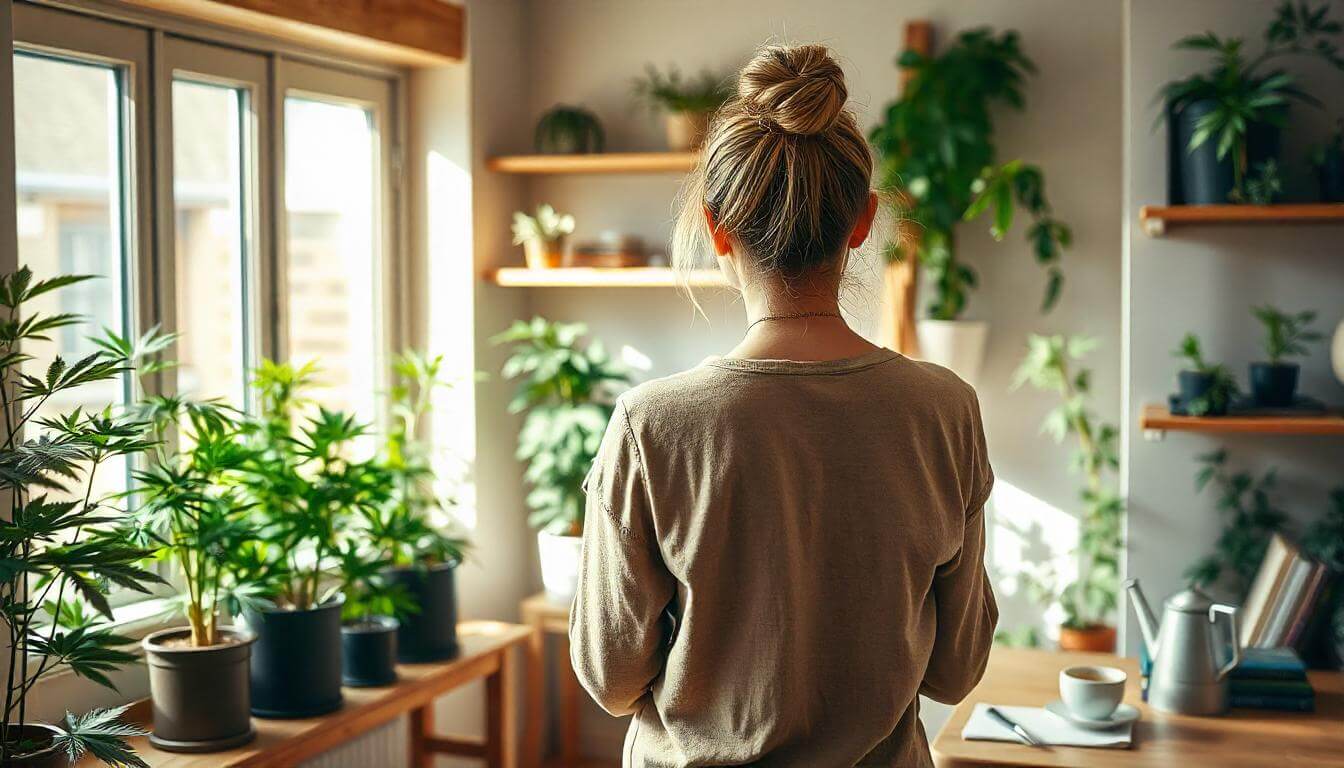The growing trend of home cannabis cultivation, particularly among women, is reshaping societal perceptions of the practice. With a focus on self-sufficiency, personal empowerment, and wellness, this movement is breaking stereotypes and creating a vibrant community of growers who view cannabis cultivation as more than just a practical activity.
Women Leading the Home-Growing Revolution
A recent survey reveals a striking demographic shift: 61% of home cannabis growers in the United States are now women. This challenges long-standing stereotypes about cannabis cultivators, who have historically been portrayed as male-dominated. For many women, growing cannabis is an empowering experience that reflects a growing comfort with open cultivation. According to the survey, 66% of respondents said they now feel comfortable growing cannabis openly, underscoring a significant shift in public attitudes.
The survey also highlights that 57% of home growers believe cultivating cannabis enables them to take control of their health and wellness. Beyond producing a final product, many view the process as a way to reclaim autonomy and foster a deeper connection to their well-being.
Cultivation as Therapy
For many growers, the benefits of cultivating cannabis extend beyond practicality. A notable 41% of respondents described the activity as a stress-relieving, therapeutic pursuit. Tending to plants has become a form of self-care for these individuals, akin to meditation. This hands-on connection to the plant provides a sense of calm and mindfulness in an otherwise fast-paced world.
Control over strain selection and quality is another key motivator, with 35% of survey participants citing it as their primary reason for growing cannabis at home. By cultivating their own supply, growers can ensure their cannabis meets personal standards for quality and potency, further enhancing the therapeutic and wellness benefits of the practice.
Breaking Down Barriers and Stereotypes
Historically, the perceived complexity of cannabis cultivation has discouraged many from trying their hand at home growing. However, the proliferation of accessible resources and supportive communities is making the process more approachable than ever. Educational materials, online forums, and grower networks have provided novice growers with the confidence and knowledge needed to get started. These resources have been instrumental in demystifying the cultivation process, proving that growing cannabis at home doesn’t require an agricultural background or professional-grade equipment. For many, the journey begins with a few seeds, a grow tent, and guidance from experienced growers who are eager to share their tips and tricks.
A Community Built on Knowledge and Collaboration
The rise of home growing has also created a tightly knit community of like-minded individuals who share their experiences, insights, and successes. Social media groups, virtual meetups, and local workshops have become hubs of collaboration, offering new growers a place to learn from others and troubleshoot challenges.
This community-driven movement has helped normalize cannabis cultivation, shifting the narrative from clandestine activity to a legitimate pursuit of health, wellness, and personal enjoyment. It’s a significant step forward for a plant that has long been stigmatized, even as legal reforms sweep across the globe.
A Cultural Shift Toward Wellness and Sustainability
The trend of home cannabis cultivation also reflects broader cultural shifts toward wellness, sustainability, and self-sufficiency. In an era where consumers are increasingly skeptical about mass-produced goods, growing cannabis at home provides a way to ensure quality, safety, and transparency.
Many growers are particularly focused on tailoring their efforts to their specific needs, choosing strains for pain relief, anxiety management, or sleep improvement. For them, home cultivation is not just a way to access cannabis—it’s a personalized approach to health and wellness.
Sustainability is another driving force. By growing cannabis at home, cultivators reduce the carbon footprint associated with commercial production and transportation. Small-scale growing practices allow for better control over resource usage, such as water and electricity, while promoting environmentally friendly techniques like organic soil use and composting.
The Future of Home Cannabis Cultivation
As home cannabis cultivation continues to grow in popularity, its impact is becoming increasingly evident. What began as a niche activity is now a symbol of empowerment, wellness, and community. For many, the practice represents a way to challenge outdated stigmas, reconnect with nature, and regain control over their health and lifestyle.
With more people, especially women, embracing this enriching practice, home cultivation is poised to become a cornerstone of cannabis culture, reflecting the plant’s potential to bring people together and inspire change on both personal and societal levels.






This article beautifully captures the empowering role women are playing in reshaping cannabis culture through home cultivation. It’s inspiring to see how growing cannabis is not just about the plant, but about wellness, autonomy, and building a supportive community. A great read that highlights an important cultural shift!